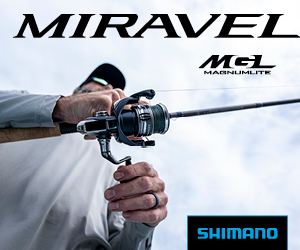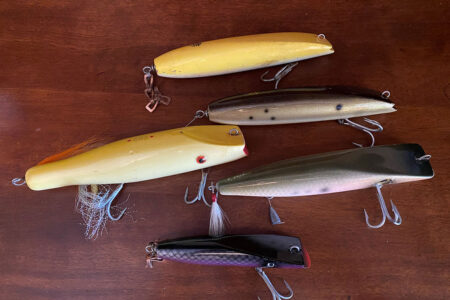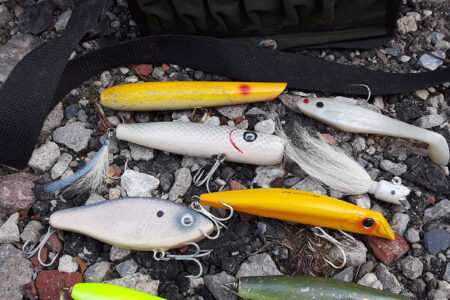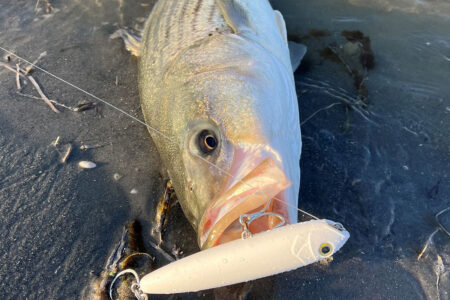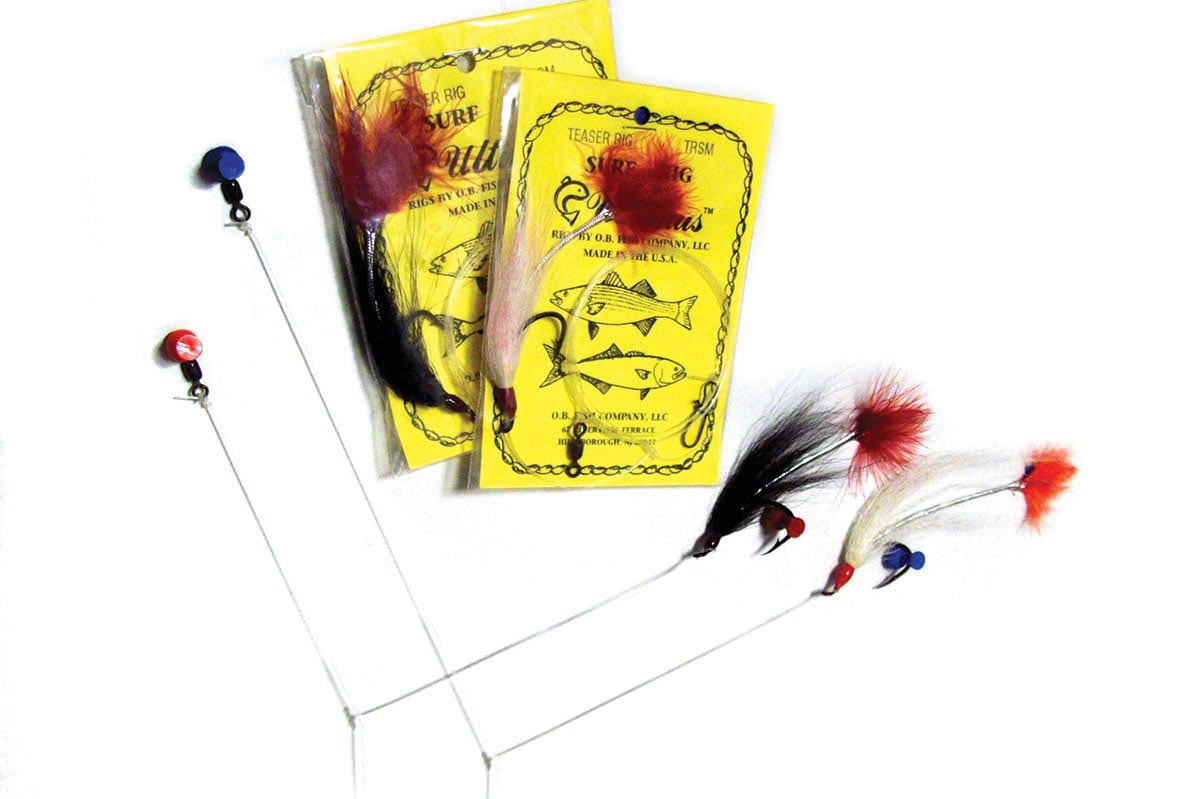
Line memory can be good or bad depending on the situation; here’s how to work with it.
There are so many variables in putting together a surf fishing presentation package that little items are often overlooked or underestimated. However, the success or effectiveness of your tackle arrangement—whether you are bait fishing or working lures—is the sum total of many parts; everything is essential. It may seem inconsequential but even mono leader material should not be kinked, knotted, or otherwise not straight once it is fashioned into bait and teaser rigs or shock leaders. Straightening it out is not just for cosmetic reasons; straight mono used for rigging also enhances your presentation illusion whether it is with bait or with a lure.
Let me offer ways you can get leader material whether it is fluorocarbon or conventional to be straight as an arrow when needed or to extend straight out at a 90-degree angle from a bait or teaser rig. Creating line memory for these uses involves sinker weights, stick-pins, unused sheetrock walls, and lots of patience. It can be used to create memory in a new creation or to fortify memory in a rig or shock leader that has been used already.
Shock Leaders
After tying a shock leader with the strength mono leader material that you prefer and in the desired length, and after attaching hardware like a snap at one end and a swivel at the other, attach a sinker weight to the snap. The heavier the weight, the quicker the memory will be imposed on the mono leader material. Hang the shock leader onto a sheetrock wall in your garage or basement—or from a wooden overhead beam—using a stickpin. Running the shock leader for a minute under warm water before hanging it will hasten the memory-acquiring process.
Teaser Rigs
Line memory is critical when fashioning teaser rigs. You want your teaser or fly to stand out from your main rig line so it does not tangle with the main line when being retrieved and also because doing so creates the most-convincing illusion to a gamefish scanning a potential target.
Using a line strength that you are comfortable with, tie a dropper loop where it needs to be with a space gap of your choosing between the dropper loop and the bottom snap where the primary lure will be attached. After applying a swivel to the top of the rig and a snap to the bottom, attach your teaser or saltwater fly to the dropper loop. Use a stickpin through the top swivel to attach the rig to a sheetrock wall or other stationary surface after adding a significant sinker weight to the bottom snap. Then use another stickpin to stretch the teaser hook away from the main line; the angle should be a bit more than 90 degrees. Over time, the dropper loop will acquire the necessary memory to make a convincing presentation. I suggest after using such a teaser rig on the beach to put it up on the wall again and arrange it as you did to create the original memory.
Bait Rigs
Depending on which species you are targeting, select the appropriate strength line and type/size hooks needed for the task. You then have two options. First, create one or two dropper loops for baits that you want to keep off the bottom or create a one-hook bottom rig. Attach your preferred hooks, swivels, sinker snaps, and any other needed hardware to complete the rigs. Dropper loop rigs should be hung with a stickpin through their top swivel with a sizeable sinker providing the stretch weight needed. Use stickpins to keep the dropper loops away from the main line at more than a 90-degree angle. Hang bottom rigs pretty much like you would a shock leader, with the hook attached to a stickpin and a heavy sinker keeping the line taut.
Memories are created from these simple maneuvers, line memories that do make a difference in your varied surf presentations. If leader rigs look good to you out of the water, they will look even better to your targeted species as they forage for food in their marine underwater environment.
